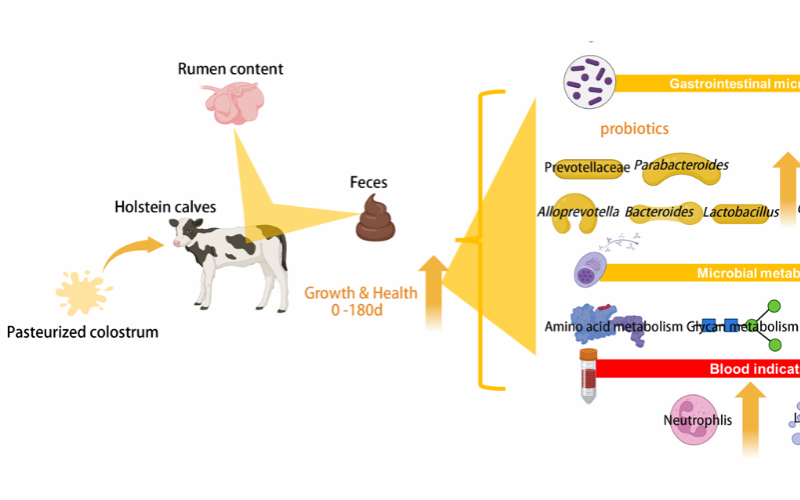Impact of Pasteurization on Dairy Calves' Gut Microbiota and Health

A recent study published in Animal Advances by Jinxin Liu and colleagues from Nanjing Agricultural University investigates the effects of pasteurization on the gut microbiota of dairy calves. Conducted on 15 newborn dairy calves over a month, this research compares the growth performance and microbial communities of calves fed pasteurized and non-pasteurized milk.
The findings reveal no statistically significant difference in growth performance between the two groups, although calves fed non-pasteurized milk showed a slight numerical increase. The study utilized 16S rRNA sequencing and microbial cultivation techniques to analyze microbial communities, focusing on short-chain fatty acids (SCFAs) in feces. Notably, isovaleric acid levels were significantly higher in calves fed pasteurized milk, indicating altered microbial activity.
Further analysis demonstrated that non-pasteurized milk promoted a more stable microbial community, particularly enhancing the abundance of Lactobacillus species such as Limosilactobacillus reuteri. Logistic regression and ANCOM-BC analysis confirmed that Lactobacillus was significantly more abundant in calves fed non-pasteurized milk, especially noticeable on the first day after birth.
Whole-genome sequencing of L. reuteri strains showed that these beneficial microbes were transmitted from milk to the calf hindgut, with similar genetic profiles found in both milk and feces. This supports the role of milk as a carrier of beneficial microbes, despite pasteurization not affecting key carbohydrates in milk.
The study underscores the importance of balancing pathogen safety with microbial health, as pasteurization, while preventing pathogen transmission, reduces beneficial microbial transfer, potentially impacting gut development.









